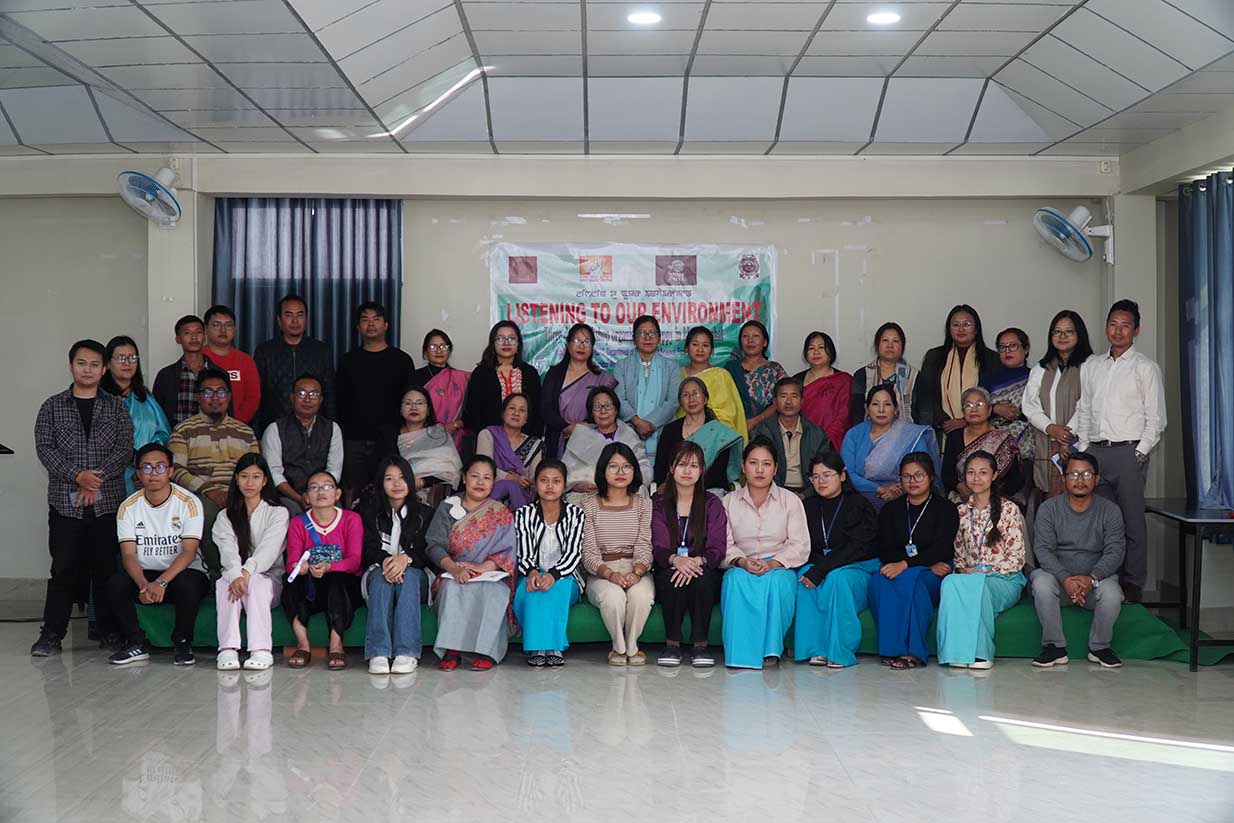As a part of the three-day workshop titled Listening to our Environment, a demonstration on how to make bio enzyme at home was held, a press release by the organisation’s co-founder Premananda Nongthombam said.
A mixture of Gur or Mollasses (Chuhi), kitchen waste or Citrus fruit waste or peels like lemon, orange, pineapple and water at a ratio of 1:3:10 respective, if kept appropriately in a plastic bottle for 45 days in summer and 3 months during winter can result in good bio enzyme, the release said.
Further it said bio enzyme made from readily available fruit waste turn into acetic acid that could be used in household cleaning liquid include toilet, floor, laundry, etc, even utensils and greases in the Kitchen.
It said the bio enzymes are less hazardous to health and affordable opines the experts in the workshop. During the workshop titled listening to our environment, Dr.Deshworjit Ningombam, Assistant Professor, Department of Botany ,Jadonang Memorial College, Long mail, Noney said that there are altogether 390 sacred groves in Manipur all of which are responsible for conserving the rich biodiversity in the State. It also highlight the alarming condition to preserve and conserve such sacred groves in the state.
The conference hall of T S Paul Manipur Women College filled with college teachers, students and environment enthusiasts also witness knowledge filled sessions on Leirol Esei by Khumanthem Nganthoileima, M. A. Manipuri Folk music opined that the traditional knowledge and the cultural association of man and flowers are often preserved in the form of written record Leirol puya. The Leirol indicates that our ancestors live closely with the nature. Such kind of traditional knowledge is declining along with linguistic and cultural aspect as well, the release added.
The songs are written in old Manipuri language and the folk songs are passed on from a teacher to its pupils. The Leirol indicates that our ancestors live closely with the nature, it said.
On the concluding day of the workshop a lecture on Umang Lai and its association with human by Radhamohan Thokchom, Maichou Atomba, Sana Konung, Utra Sanglen delves into the concept of how Umang Lai Haraoba imparts social conduct, discipline, morality, sportsmanship in one’s life. The scholar also opine that Umang Lai are the first settlers of a region indication that Umang Lai is ancestor worshipping practice which encompasses circle of life, it said.
The workshop was organised by Happy In Khol in collaboration with IQAC, Department of Environmental Science, Department of Biotechnology, Eco Club , UBA Cell , T.S Paul Manipur Women’s College (TSPMWC) , Mongshangei and Midas Touch ( Environmental Organization) , Imphal. It was supported by Henry Martyn Institute (HMI) Hyderabad, International centre for Research, Interfaith Relation and Reconciliation, the release further added.












